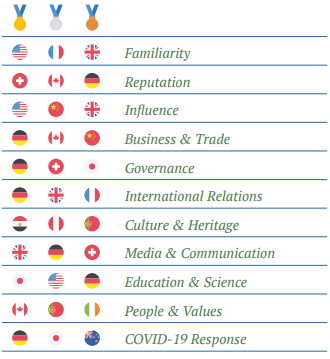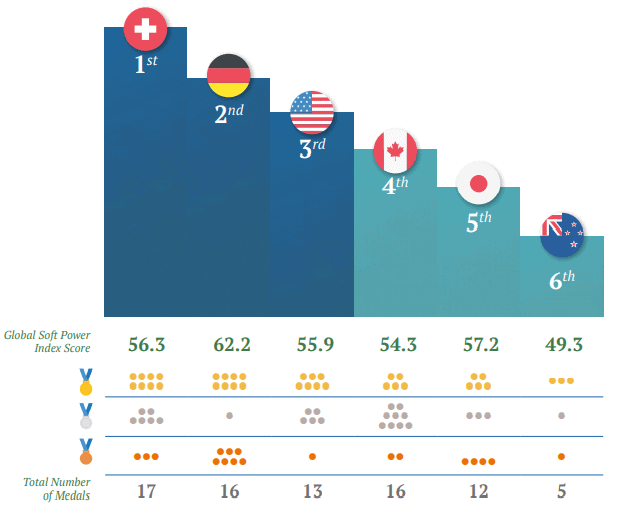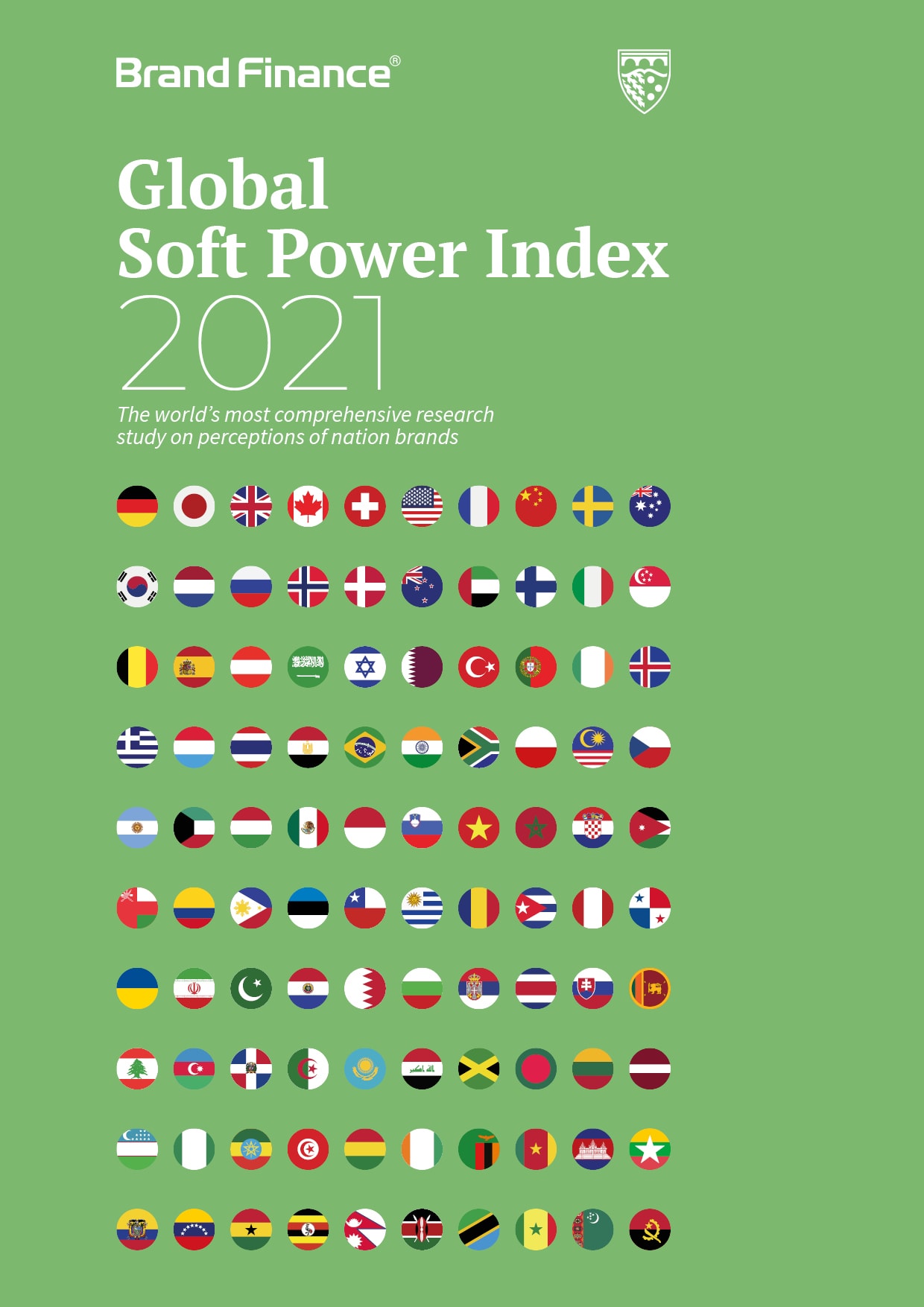As part of our annual analysis, results from the general public are tallied to see which nation wins on each of the 34 measures within the seven Soft Power Pillars. After a long and rigorous survey of public opinion – covering 75,000 respondents across 102 countries, representing all continents and regions of the world – the results are in, and the competition for soft power superpower is hotter than ever.
Europe's Golden Nugget
With a total of 17 medals, Switzerland high jumps to a podium spot overtaking the US in this year’s medal table. Leading the pack in several measures, the nation most famous for neutrality, Lindt chocolate and cheese fondues is also considered by most to be the gold standard in political stability and governance, ethical standards, safety, international relations, and trustworthiness.

Ranking not second but third with 13 medals, it’s no ball wonder that the US also relinquishes two golds and its position as leader in both sports and science to Brazil and Japan, respectively. The US still performs well in various measures, winning gold for influential in arts and entertainment, influential in diplomatic circles, affairs I follow closely, and influential media.
Second-ranked Germany records a healthy 16 medals, leading the way in group dynamics with golds for respected leaders, a strong and stable economy, and helping other countries in need. Breaking the ice and pucking its way up two places from last year to claim the fourth podium spot is Canada. On par with Germany in the number of medals, Canada ranks first in respecting law and human rights, being easy to communicate with, generosity and education, but misses out on measures with higher weightings in which Germany widely dominates.
An Un-royal Flush
Despite winning 15 medals – including two golds – and ranking third in overall Index score, the UK finds itself on the boulevard of broken teams once again, failing to make this year’s podium by a meager one place. Just ahead is New Zealand in sixth podium spot; with only five medals but top scores across all measures in Covid-19 response, it was bound to be game, set, match for the Kiwis.
Guarding its position in 5th podium spot with 12 soft power medals is Japan. As host of this year’s Olympic Games, it will be interesting to see if this nation will turn assumption on its head and prove to be a leader in sports after all.
Countless Roads to Soft Power
Although public opinion may account for the lion share of the weighting in each of the Soft Power Pillars, specialist audience perceptions for the same measures within these pillars may differ. These specialist audiences include business leaders, market analysts, politicians, academics, think-tanks, NGOs, and journalists.
For instance, in this year’s Index, the general public ranked Italy, Spain and France as the top three nations for Culture & Heritage, where the specialists awarded gold, silver and bronze to Egypt, Peru and Portugal, respectively.

These differences can also be seen when comparing public and specialist opinions in the Business & Trade and People & Values pillars. While both the general public and specialist audience included Germany and Canada in their top three ranking nations for these pillars, they awarded the other two spots to different nations entirely. In Business & Trade, the general public included Japan and US as first and third respectively, while the specialists awarded silver and bronze to Sweden and New Zealand.
As the medal table shows, each of the soft power nations finds its place in the world by defining its image and differentiating itself from other nations. While the roads to soft power may be varied, it is up to each nation to determine its own route. As global politics continues to transition to a new normal, we are sure our medal table will change with it.

